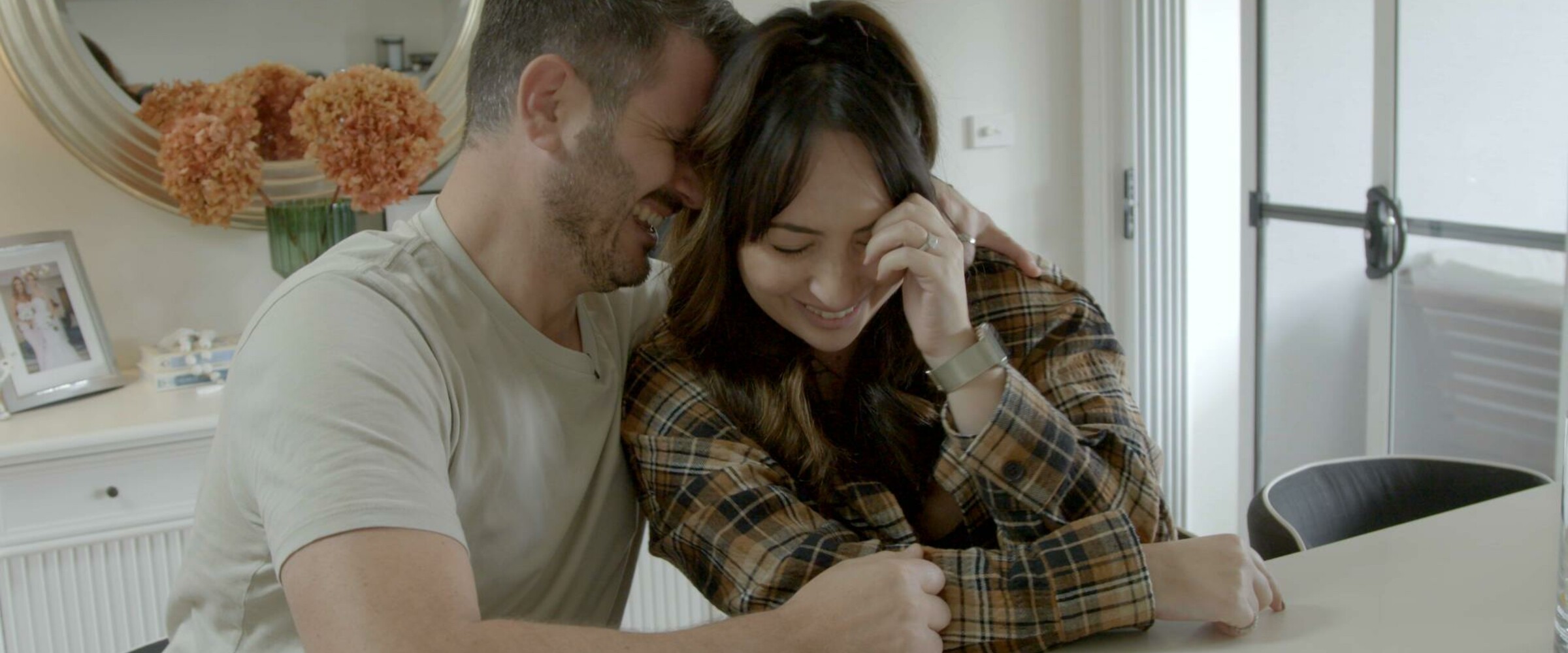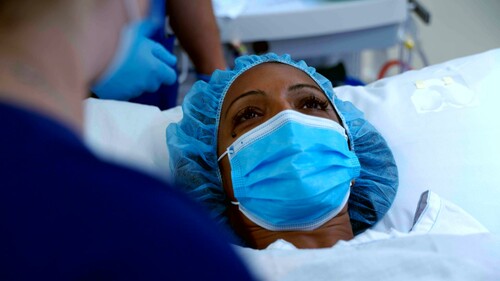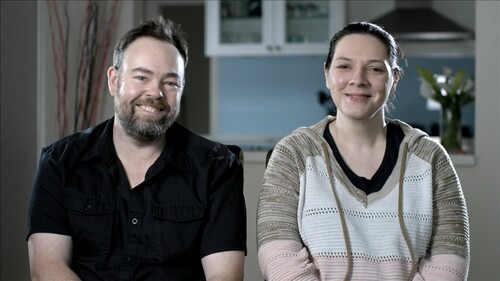
6 things Big Miracles taught us about fertility
6 things Big Miracles taught us about fertility
Taboo, swept under the rug, and misunderstood don’t even begin to describe the everyday person’s perception of fertility. And, all too often the f-word (fertility) is considered dirty. For those on the tumultuous ride that is trying to conceive (TTC), the common thread that so often binds the TTC community together is the mutual understanding that those closest to them simply can’t begin to understand.
Enter, Channel 9's Big Miracles; the seven-part docuseries that heroes the trials and triumphs of courageous Australian couples undergoing fertility treatment. The ground-breaking documentary series was filmed in our clinics featuring our fertility experts at Virtus Health and follows eight brave and determined couples on their journey to parenthood.
With the premise to open the conversation around fertility, offer raw insight and provide education to the masses, the tv-show has made the f-word a little less brash and a little more brave. So, what has it taught us? Here’s 6 things Big Miracles taught us about fertility.
1. Mental and emotional health is imperative
The emotional and psychosocial implications of baby-making extend well beyond feeling down when it’s not happening or simply feeling ‘clucky’. Experiencing fertility treatment can bring about recurrent themes of blame, fault, physical demands, financial stress, grief, and disruption to one's daily life, which can be difficult to manage. At the crux of it all, mental wellness is the underlying component that allows patients to propel themselves forward with grit and tenacity throughout their journey. Big Miracles shows that it’s ok to take a break from treatment, that seeking a counsellor or psychologist’s support is vital and leaning on your partner is essential.
And, importantly, Big Miracles highlighted that men’s mental health is just as integral as women’s. In episode 1, Amelia and Andrew navigate the difficulties of fertility treatment and investigations, as they learn that Andrew’s low sperm count is likely the cause of pregnancy delay. Later, the show puts Amelia’s roller coaster ride of feelings on display as they begin an IVF cycle, showcasing the importance of leaning on not only your partner but also your doctor and care team to provide support along every step of the journey.

2. Ovulation is important
If there’s one thing that’s been driven home by Big Miracles, it’s that ovulation isn’t merely a part of the menstrual cycle but rather the cornerstone of conception. Fertility is complex, and without regular ovulation paired with the development of healthy follicles in the ovaries and thickened uterine lining, pregnancy can’t happen. And, with a 24-hour window for sperm to meet the egg, ‘getting jiggy in the sheets’ is dictated by the release of the egg – meaning sex should be had every other day around the time prior to ovulation to maximise the chance of baby-making. Known to be fickle, if your menstrual cycle is irregular or ovulation isn’t happening, it’s often recommended to induce ovulation though medications such as Clomid or FSH by encouraging eggs to develop in the ovaries and be released.
In Big Miracles, Wollongong couple Courtney and Woody show Australian households firsthand the implications of irregular ovulation throughout their journey. After trying to fall pregnant for years, the couple tried Ovulation Induction (OI) to stimulate Courtney’s ovaries. Their IVFAustralia fertility specialist, Dr Elizabeth Maxwell, offered great insight into the different methods of OI in episode 2.
3. Egg quality and quantity is directly correlated with age
Unfortunately, age is no friend to female fertility. Egg quantity is finite from birth and only decreases with age. And much like quantity, the quality of eggs slowly decreases too. Most females are born with around 2 million eggs and by puberty about 400,000 remain. By the age of 36, both the quality and quantity of eggs reduces substantially, leaving a 4% chance of pregnancy per month by the time a woman is 41. The ruthlessness of age accounts for a substantial portion of infertility cases and can contribute to mental and emotional anguish. Often, when one’s biological stockpile of eggs has been exhausted when trying for a baby, a donor may be considered to continue the path to parenthood.
Sheila and Tyson’s story puts a spotlight on the reality of eggs and age. Although she froze 11 eggs at the age of 38, when her frozen eggs didn’t survive thawing, fertilisation and transfer, they suddenly had to face other options. Fertility Specialist Dr Raewyn Tierney explained the probability of success using eggs at Sheila’s current age of 45. Raewyn says that due to the decrease of quality and quantity of eggs with age, Sheila's chance of falling pregnant in her mid-forties – even with the help of IVF - is less than 5%.
Seeing Sheila and Tyson’s brave battle to achieve their dream of parenthood in Big Miracles has truly cemented the reality that female age remains the biggest predictor of success. And that family planning should occur as early as possible.

4. Egg freezing can help you take control of your fertility timeline
If you don’t want to put all your eggs in one basket, put them on ice instead! Freezing your eggs can be an investment in your future that empowers you to take charge of your career, studies, or travel sans the worry about your biological clock. For individuals, couples, and members of the trans and gender diverse community, egg freezing can be a tool to write your own narrative without the pressures of age and biology. While it doesn't guarantee all eggs will be viable for future use, freezing your eggs while you’re younger preserves the quality of those eggs at the time – which, in turn, can increase the chances of success in the future. The best time for egg freezing is ideally below the age of 35, and you can keep them stored for as long as you need to. The egg collection process involves consultations, tests, medications, and procedures that can be challenging, though having your eggs frozen can give you more options for your future fertility, enabling you to press pause on parenthood.
In episode 2 of Big Miracles, we see highly regarded (and empowering) sexologist, Chantelle Otten and her partner tennis champion Dylan Alcott embarked on their journey to parenthood by delaying it for when they are ready. Chantelle had her eggs frozen and stored so that she can focus on her career without the pressures of her biological clock.
5. IVF isn’t always the first and only choice
You’d be forgiven for thinking that fertility treatment begins and ends with IVF. Fortunately, this isn’t always the case. While it might be the treatment with the largest share of voice, many patients benefit from a better understanding of their cycle, ovulation induction, or encouragement to make lifestyle changes. Courtney and Woody’s preference for a less invasive and more natural approach to treatment through OI (Ovulation Induction) is the perfect example of how IVF isn’t the first and only option. Often, other options such as fertility drugs, intrauterine insemination (IUI), and laparoscopy are explored first depending on the individual's specific situation before intervening with IVF.
6. Ovarian tissue grafting is changing (and creating) lives
For those who face a cancer diagnosis or other medical issues, fertility preservation options are often offered prior to commencement of treatment to uphold the hope of having a baby that’s biologically theirs. Typically, this includes egg freezing, embryo freezing or sperm freezing. Big Miracles revealed new, cutting-edge innovations in the fertility preservation space, that allows fertility to return after cancer treatment ends. Shown first-hand on the small screen, Ovarian Tissue Grafting is a world-leading procedure used to grow eggs from frozen ovarian tissue implanted into another part of the body to produce reproductive hormones. The treatment, pioneered by Melbourne IVF’s Associate Professor Kate Stern, provides unequivocal proof that the freezing of ovarian tissue can preserve follicle development and ovarian function to allow for pregnancy. This ground-breaking technology used in our clinics serves as a reminder for just how vital innovation and research is to Virtus Health and those who can benefit extraordinarily from it. To date, just less than 200 babies have been born from the innovative technology worldwide. Advancements in fertility preservation medicine, such as this, are becoming a beacon of hope for those undergoing cancer treatment.
On Big Miracles, cancer survivor Katrina and her husband, Steve, used the revolutionary Ovarian Tissue Grafting procedure after Katrina’s pelvic organs were affected by intensive cancer treatment. Doctors froze Katrina’s ovarian tissue prior to her treatment, and now, with the help of A/Prof Kate Stern and IVF technology, Katrina was able to produce eggs once again.
Catch up on all Big Miracles episodes on 9Now or learn more about the show here.

Ready to take the next steps on your pathway to parenthood?
Let us help! Give our friendly team a call on 1800 111 483 to get started with an initial consult.
